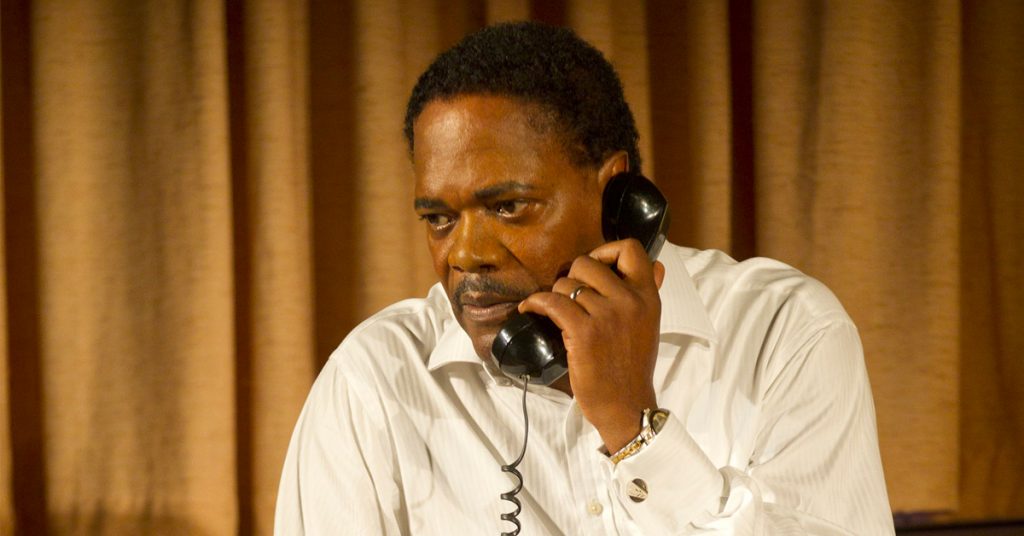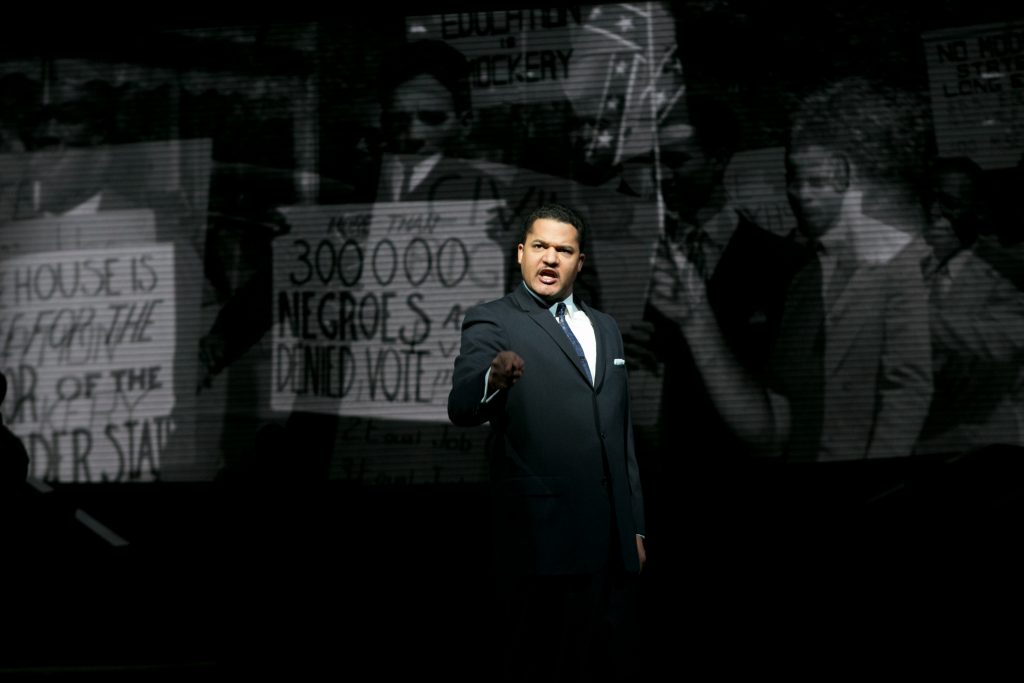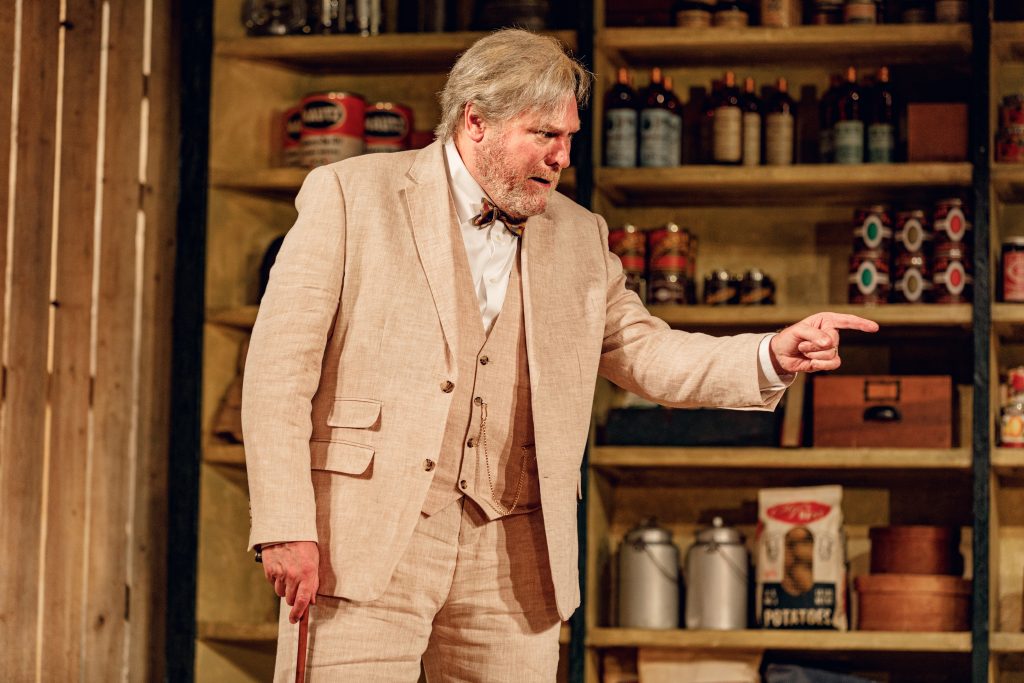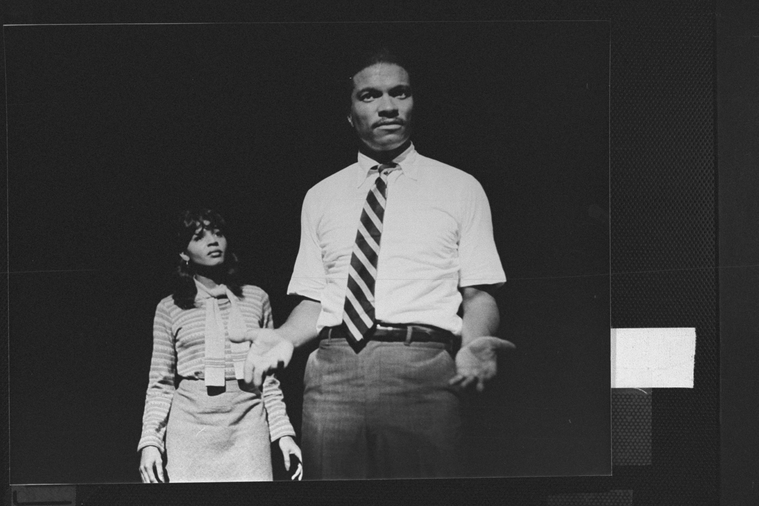- Creative
The Legacy of Martin Luther King Jr. on Broadway
January 15, 2024
•
Broadway is often a platform for important stories that reflect the diverse tapestry of our collective history. Martin Luther King Jr., an iconic figure in the civil rights movement, has not been exempt from this trend. Over the years, various productions have paid homage to his legacy through impersonation, invocation, and references. In celebration of Martin Luther King Jr. Day, let’s take a journey through some notable instances of Martin Luther King Jr. on the Broadway stage.

The Mountaintop
Katori Hall’s The Mountaintop provides a unique perspective on the last night of Dr. King’s life. Premiering on Broadway in 2011, the play featured Samuel L. Jackson as Martin Luther King, Jr., and Angela Bassett as a mysterious hotel maid. The production delved into King’s inner thoughts and struggles, offering a poignant portrayal of the man behind the movement. The Mountaintop humanizes the legendary leader, giving audiences a glimpse into the vulnerability beneath the public persona.

All The Way
Bryan Cranston took on the challenging role of President Lyndon B. Johnson in All The Way, which premiered on Broadway in 2014. While the play primarily focuses on LBJ’s presidency, it touches upon the Civil Rights Act and King’s interactions with the administration during a crucial period in American history. Brandon J. Dirden took on the role of the iconic activist as “All The Way” served as a reminder of the intricate dance between political leaders and activists during a pivotal era.

Purlie Victorious: A Non-Confederate Romp Through the Cotton Patch
Although not a play centered on Martin Luther King Jr., Ossie Davis invokes his name in Purlie Victorious as a timeless symbol of progress and racial equality when Ol’ Cap’n Cotchipee asserts that segregation ought to remain the way of things and “to hell with Abraham Lincoln and Martin Luther King.” It also deserves mention due to King’s actual attendance at its original Broadway production. Dr. King was in the audience when the play reached its 100th performance, becoming a historical moment connecting theater and the civil rights movement.

I Have A Dream
I Have A Dream was a musical revue that pays tribute to the powerful words of Dr. King. Premiering on Broadway in 1976, the production wove together King’s speeches and sermons, providing audiences with a musical journey through the key moments of the civil rights movement. Billy Dee Williams played the central figure. Through soul-stirring musical performances and poignant storytelling, “I Have A Dream” celebrated the enduring impact of King’s words and the resonance they continue to have in the fight for justice and equality.

One Night in Miami
Kemp Powers’ play One Night in Miami explores a fictional meeting between Malcolm X, Muhammad Ali, Sam Cooke, and Jim Brown. While not directly focused on King, the play acknowledges his influence on the era, placing his ideals at the center of the cultural and political discourse. One Night in Miami invites audiences to reflect on the interconnectedness of historical figures and the collective pursuit of social change. The play underscores the enduring relevance of King’s principles in shaping conversations around activism and equality. The play was adapted by Regina King for a 2020 film.
These Broadway productions serve as a testament to the enduring impact of Martin Luther King Jr. on American society. Whether through direct impersonation or indirect references, the stage has become a canvas for artists to explore and celebrate the legacy of a man who played a pivotal role in the fight for civil rights.